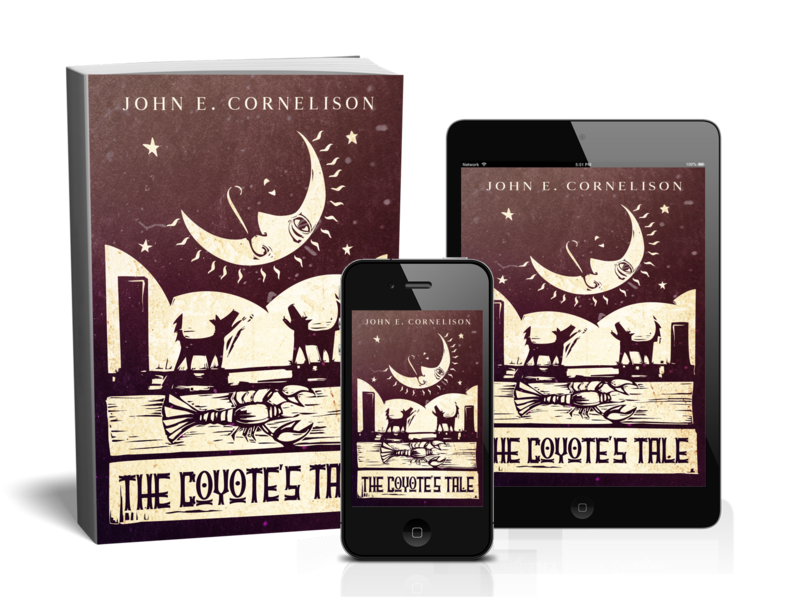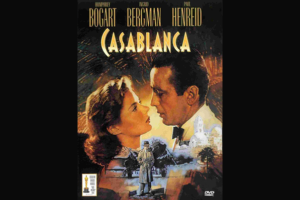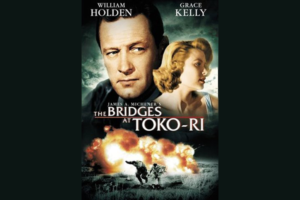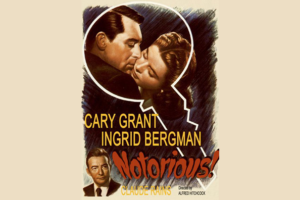
He did a certain kind of film or genre of these kind of dark, ironic films. He knew what he did, and he did it. He did it in the commercial center of film. – Laurence Leamer


Hitchcock’s Blondes
00:00:00:00 – 00:00:17:16
Speaker 2
You know, he wouldn’t do Lawrence of Arabia. He wouldn’t do On the Waterfront. He did a certain kind of film or genre of these kind of dark, ironic films. He knew what he did, and he did it. He did it endlessly and he did it in the commercial center of film.
00:00:17:16 – 00:00:31:14
Speaker 1
Today we are visited by the incredibly talented Lawrence Leamer, a prolific author whose literary journey spans 18 captivating books, including five that have graced the prestigious New York Times bestseller list.
00:00:31:15 – 00:00:39:00
Speaker 1
Lawrence has a remarkable gift for weaving together history, politics and, of course, the glitz, glamor and dark side of Hollywood.
00:00:38:29 – 00:00:47:16
Speaker 1
Today we will be discussing his latest book, Hitchcock’s Blondes: The Unforgettable Women Behind the Legendary Director’s Dark Obsession.
00:00:47:17 – 00:00:51:01
Speaker 1
I’m honored to introduce today’s guest, Lawrence Mayer.
00:00:51:01 – 00:00:51:22
Speaker 1
Larry.
00:00:51:24 – 00:00:53:21
Speaker 1
Thank you so much for being here today.
00:00:53:21 – 00:00:54:11
Speaker 2
Thanks, John.
00:00:54:11 – 00:00:58:25
Speaker 1
I’ve been reading your book here, and it’s just wonderful. Really enjoy it.
00:00:58:25 – 00:01:00:20
Speaker 1
How did you pick this subject?
00:01:00:20 – 00:01:05:18
Speaker 2
Well, you know, you go to your go to prime video and plug in. Hitchcock’s names
00:01:05:18 – 00:01:21:00
Speaker 2
like over 40 of his films are of are. You can you can enjoy even today. Okay. He was the greatest director of the 20th century. And so much of that greatness had to do with these actresses, these blond actresses that he was obsessed with.
00:01:21:05 – 00:01:23:19
Speaker 2
So I thought it was a natural subject for a book.
00:01:23:19 – 00:01:24:08
Speaker 1
Fantastic.
00:01:24:08 – 00:01:35:18
Speaker 1
You know, reading your book, I realized that I don’t know anything about Hitchcock. I thought I knew a little, but I didn’t know much. They’re really just filled in the background with so much detail.
00:01:35:18 – 00:01:41:26
Speaker 1
What part of this book did you find the most challenging to write out of all, out of all these stories?
00:01:41:28 – 00:02:05:18
Speaker 2
I guess it was just realizing and developing the pressure appreciation for this man. You know, he wouldn’t do Lawrence of Arabia. He wouldn’t do On the Waterfront. He did a certain kind of film or genre of these kind of dark, ironic films. You knew what he did and he did it. He did Amnesty, and he did it in the commercial center of film.
00:02:05:20 – 00:02:16:29
Speaker 2
Early on in the twenties, he went to the early movie theaters and he saw the theaters are full of women and he knew he had to have movies that would please women. And that’s what he made. Okay. All right. Fantastic.
00:02:16:29 – 00:02:26:00
Speaker 1
How would you describe the ideal reader for you, for your book? Who is this really targeted at? People that know a lot about film, though? Very little of both.
00:02:26:03 – 00:02:39:25
Speaker 2
I guess both. I mean, just very interested, not just about Hitchcock, but about human character. These women are just fascinating. I didn’t realize the extent when I got into it. But even if you’re not interested in film, you might be interested in these women.
00:02:39:28 – 00:02:51:19
Speaker 1
I was just struck with the Ingrid Bergman, who just her life is so. And you hit it very well in the book, how her life is so different than the and then what we see on the screen.
00:02:51:21 – 00:03:09:21
Speaker 2
You know, I knew I knew her ex-husband, Peter Lindstrom, her first husband was a good friend of mine. And I wrote a book about Ingrid Bergman. And Peter would come over to our house about once a week, and he always insisted my wife would sit there because I would agree with something he would say. And you get angry.
00:03:09:28 – 00:03:27:20
Speaker 2
My wife would say, Ingrid loves you more than anybody else. And that was okay. He was he had remarried. He married a doctor. He had three children. Wonderful. Something great in life. And yet in retirement, he’d go down in the basement and watch Ingrid Bergman films. That’s how obsessed with her he was.
00:03:27:20 – 00:03:43:27
Speaker 1
Okay. you know, she’s such a special actor. Sundays in one part in Casablanca, where she turns and she’s wearing a hat and the light hits her out of the dark. It’s just. It’s the most beautiful image I’ve ever seen in a film. And it’s not a Hitchcock film, but it’s know.
00:03:43:27 – 00:04:01:07
Speaker 2
I remember she’s half she’s half German. And she could have been she was a star in an orphanage in Berlin before the war. If there’d better there’s a problem with the money, or she would have been in making a film in Berlin in the summer of 1939. And she wouldn’t have come to the States to make the walk, I don’t think.
00:04:01:09 – 00:04:08:24
Speaker 1
Right, you said. Yeah. You mentioned that when she would have been there, when the invasion of Poland took place. Yeah. Right. Okay.
00:04:08:24 – 00:04:16:23
Speaker 1
Now, this is kind of just an opinion question. Obligatory of all these incredible actresses. Who do you feel is the greatest.
00:04:16:26 – 00:04:18:04
Speaker 2
While the greatest?
00:04:18:04 – 00:04:19:28
Speaker 1
You can define greatest however you want.
00:04:19:28 – 00:04:28:01
Speaker 2
One that I saw, I think had the potential for greatness was. Was Grace Kelly. If you have you see the country girl.
00:04:28:03 – 00:04:30:21
Speaker 1
I have not. I’ve seen the rear window.
00:04:30:23 – 00:04:43:09
Speaker 2
Of her time. She was fantastic in that you had her off and and married Rainier. Prince Rainier managed your love. She would have been one of the greatest the greatest actress of our time, I think.
00:04:43:11 – 00:04:44:23
Speaker 1
Really? that’s very interesting.
00:04:44:23 – 00:04:53:18
Speaker 2
Range of things. Be her beauty, limited her in some ways as people wanted to just portray her, is this beautiful woman. When she got older, she wore down all kinds of parts.
00:04:53:18 – 00:05:07:28
Speaker 1
that’s interesting, I thought, because when I watched Rear Window, I thought, well, she’s just too beautiful to be with Jimmy Stewart. You know, that’s a photographer. And, you know, she just yeah, I can see where her beauty would really affect her like that.
00:05:08:00 – 00:05:23:03
Speaker 2
Yeah, well, that’s true of how this could be an older guy. You could be Humphrey Bogart. Not terribly attractive and old. But you have a young woman, right? We don’t. We don’t have an older woman of the young with a young man very often in films.
00:05:23:05 – 00:05:23:20
Speaker 1
Right.
00:05:23:20 – 00:05:36:04
Speaker 1
Okay. I was the especially the first two chapters. How do you feel Hitchcock’s legacy as a director is diminished by the harsh tactics he used during filming? I know that you mentioned MeToo in.
00:05:36:04 – 00:05:37:05
Speaker 2
Here, and.
00:05:37:07 – 00:05:40:14
Speaker 1
I think he would have been not destroyed nowadays.
00:05:40:16 – 00:06:04:29
Speaker 2
Yeah, but you know what? I think people make that people say that it’s like Abraham Lincoln wanted to send that send the the slaves the free to send them back to Africa. Okay. That was his. He grew up out of that feeling. But but he that was that era and and JFK and all JFK women. But he would have acted a different way in Hitchcock, too.
00:06:05:04 – 00:06:14:05
Speaker 2
In our world, you got to act a different way. You may feel like trying to do these disgusting things, but if you get caught, it’s all over.
00:06:14:07 – 00:06:22:12
Speaker 1
Right. So. So I guess more like he should be judged as a character of his time and not as we see things now.
00:06:22:15 – 00:06:26:24
Speaker 2
Yeah, he can just. Sure. Everybody can pull down every statue. Right.
00:06:26:26 – 00:06:38:15
Speaker 1
Okay. It makes perfect sense to me. And I agree with you in a but what do you think? Hitchcock focused so much malice on Tippi Hedren with the with the Birds thing and the money.
00:06:38:17 – 00:06:59:15
Speaker 2
Was on her. But look, he was watching the Today Show one morning and he sees you doing an ad She was a top model in New York, and he brings her here without any experience. And she starts using baby in some of these Hitchcock presents TV things, But she never imagined her first thing would be to be star in the birds.
00:06:59:18 – 00:07:08:05
Speaker 2
So he had to work with her very hard. And in some way, I wouldn’t say it was cruel, but he was, you know, he just pushed her and pushed her and
00:07:08:05 – 00:07:11:18
Speaker 2
he was obsessed with her dangerous obsessed with her.
00:07:11:21 – 00:07:20:06
Speaker 1
The. And so you like to strapping the birds to her head and everything was necessary to get the correct shots or that he wanted. You know what?
00:07:20:06 – 00:07:38:11
Speaker 2
Look, he could have done that in one shot and a half hour. Okay. So most directors have done he did it. He put these birds around her for four or five straight days. And last day he tied these birds under her arms. It kind of poked her eyes out. Was it was it because he hated her? Want to do terrible things?
00:07:38:11 – 00:07:45:28
Speaker 2
You know, who’s a perfectionist? He wanted to get these great shots and like they’re not Birds is terrific movie.
00:07:46:01 – 00:07:57:07
Speaker 1
I love that movie. So he’s just he’s after his vision, then I guess what it takes to get his vision. If you have to go up the stairs for 4 hours in a row or whatever.
00:07:57:09 – 00:07:58:00
Speaker 2
Yeah.
00:07:58:02 – 00:07:58:23
Speaker 1
Okay.
00:07:58:25 – 00:08:01:06
Speaker 2
He just used actors. Look,
00:08:01:06 – 00:08:08:13
Speaker 2
he was a he had a limited appreciation of actors. He just plug them in. He thought there was in some ways, the kind of interchangeable.
00:08:08:13 – 00:08:09:24
Speaker 1
That was kind of a common thing.
00:08:10:01 – 00:08:22:12
Speaker 2
And they weren’t the essence of the film. He was he began as a sound film filmmaker, and he still was a silent filmmaker in some ways with a little dialog at it. That’s the picture was everything with him.
00:08:22:12 – 00:08:41:04
Speaker 1
And John Ford and some of the other big directors were pretty down on their actors too. So that was very common right at the beginning. Okay. All right. Well, I know there’s so many, you know, 40 great Hitchcock films. You have a one that you like more than the other. So I won’t tell you your favorite, but.
00:08:41:04 – 00:08:49:04
Speaker 2
I think Marnie was Kim Novak is kind of underappreciated. So I think that’s a very interesting film.
00:08:49:07 – 00:08:52:10
Speaker 1
Morning. Okay. Yeah, that’s some term deep,
00:08:52:10 – 00:08:56:19
Speaker 1
frigid fragility and rape and some serious topics in that movie.
00:08:56:19 – 00:09:01:23
Speaker 1
I big I love Notorious, which, of course, as Ingrid Bergman, Claude Claude Rains and
00:09:01:23 – 00:09:02:14
Speaker 1
Cary Grant.
00:09:02:14 – 00:09:10:19
Speaker 1
And then his vision for like north by northwest and in how do you feel that
00:09:10:19 – 00:09:14:09
Speaker 1
what movie shows the best of Alfred Hitchcock.
00:09:14:09 – 00:09:14:28
Speaker 1
Wow.
00:09:14:28 – 00:09:22:29
Speaker 2
Well, the greatness of Alfred Hitchcock is there’s no one movie that shows the best you can go back to to the
00:09:22:29 – 00:09:37:07
Speaker 2
Lodger is 1970 27 sound wonderful sound film that shows the best of him. And then later on, Marnie shows the best of them. 30 years, 40 years, years later. That’s how great this man was and underappreciated.
00:09:37:10 – 00:10:01:28
Speaker 2
When Francois Truffaut in the mid sixties came to and spent a week with with Hitchcock in L.A., Truffaut only spoke a little English. They had an interpreter, and he did this long, long the five day interview where they talk about all the intimacies of making a film. And that became this movie which anybody who wants to become a director is serious about filmmaking as read that book.
00:10:01:28 – 00:10:06:10
Speaker 2
It’s that great. So much to learn that book, and there’s so much to learn from Hitchcock.
00:10:06:10 – 00:10:19:10
Speaker 1
Okay, I read somewhere else, I guess it was for the laundry. He had the stairway built so they couldn’t shoot it from another direction. They could only shoot it from one view. And in the.
00:10:19:10 – 00:10:20:25
Speaker 2
Larger he has this shot,
00:10:20:25 – 00:10:30:03
Speaker 2
it’s gone. It’s an upstairs and he has glass for the floor. I mean, he just he just was constantly thinking about all these innovative shots going to.
00:10:30:05 – 00:10:45:17
Speaker 1
Okay. And I also read I’m not sure where I read it, but they tried to call Hitchcock an American director because he came up in an American studio in England. Do you have any thoughts on that? Well,
00:10:45:17 – 00:10:46:26
Speaker 1
as far as the methods.
00:10:46:26 – 00:10:55:29
Speaker 2
I think of a, you got Americans who I think of as an American director, great American director. I mean, we’re a country of immigrants. So he’s as American as you and I are.
00:10:56:02 – 00:10:58:17
Speaker 1
Yes. Very good. All right.
00:10:58:17 – 00:11:08:12
Speaker 1
What have I would have forgotten to ask you in this little short time, what would you like to say about Hitchcock or the book that I didn’t touch on as a subject?
00:11:08:12 – 00:11:08:29
Speaker 1
No.
00:11:09:02 – 00:11:21:22
Speaker 2
The only kind of immortality that we can be sure enough, this human memory. And in that way, Hitchcock is immortal. As we’re speaking right now. There are people all over the world watching his films.
00:11:21:22 – 00:11:22:20
Speaker 1
fantastic.
00:11:22:20 – 00:11:28:16
Speaker 1
just did a Charlie Chaplin book, and it was when they brought him back. Diamond Yes.
00:11:28:18 – 00:11:29:23
Speaker 2
He’s my buddy.
00:11:29:25 – 00:11:41:10
Speaker 1
yeah. Great. That’s a good book, too. You guys are doing some fantastic work. He when he came back and they gave him the, you know, the lifetime Achievement award and he was kind of
00:11:41:10 – 00:11:49:13
Speaker 1
honored. He was honored. And this that’s kind of the same when Hitchcock got his award at the end, when Ingrid Bergman did the presentation.
00:11:49:16 – 00:11:54:06
Speaker 1
I mean, does it when your peer group embraces you like that, is that
00:11:54:06 – 00:11:57:11
Speaker 1
vindication of your methods or your ways in.
00:11:57:14 – 00:12:19:27
Speaker 2
Which to use old news out of it? And when I write a book, I in my head write the last chapter first, and then I write the book, right? Then they write the rest of the book to justify that last chapter. And in Hitchcock’s plans, it’s the 1979 AFI tribute to Hitchcock. He’s he’s he’s kind of depressed out of it.
00:12:19:27 – 00:12:43:21
Speaker 2
And his wife is there. She’s said the strokes and some of they bring her in proper up and and Ingrid Bergman is the master ceremonies that evening and all these people come forward and they show these film clips and he just looks down to his plate, is no emotion, nothing at all. Nothing at all. And at the end, at the end of the evening, English is one last thing I want to do.
00:12:43:23 – 00:12:49:10
Speaker 2
When we were making Notorious, we had the famous key for the wine cellar and
00:12:49:10 – 00:13:04:28
Speaker 2
Cary Grant took that key and he kept it for ten years and it gave him lots of good luck. And for ten years he gave it to me and I kept for ten years. And it gave me some good luck. And now, Hitch, I’m coming down and giving the key to you.
00:13:05:01 – 00:13:24:20
Speaker 2
And he walked down into the theater. And at this point, everybody stood up and applauded. She walked to the auditorium, gave to a table, and Hitchcock was standing up to too. And she embraced him. She hugged him. I’d like to be hugged, but clearly liked it this evening. And she hugged him back. And he was he was just embracing her.
00:13:24:22 – 00:13:27:10
Speaker 2
It was alive again. It was embracing life itself.
00:13:27:10 – 00:13:27:28
Speaker 2
wow.
00:13:28:00 – 00:13:43:05
Speaker 1
Yeah. That’s an amazing story. And then also tying it back to that shot when she has the key in her hand and Claude Rains is coming in. She has to get rid of it. That that is just one of the most thrilling shots in cinema, I believe.
00:13:43:09 – 00:13:44:21
Speaker 2
Exactly. Yeah.
00:13:44:23 – 00:13:48:29
Speaker 1
And so the tied in at the end with that key is just fantastic.
00:13:48:29 – 00:13:54:09
Speaker 1
Can I ask, where can people find you on social media? Where do you want to direct people to to get the
00:13:54:09 – 00:13:59:21
Speaker 2
my website, which is Leah and the dot com and send me an email that way.
00:13:59:24 – 00:14:14:13
Speaker 1
Okay. Well like I said, this book was is fantastic. I really enjoyed it and it’s going to be a good reference going forward. I congratulate you on a fantastic job and thank you for coming today,
00:14:14:13 – 00:14:15:27
Speaker 1
but thank you very much.
00:14:15:27 – 00:14:17:29
Speaker 2
Okay, John, you were great. I really appreciate. I enjoyed.
00:14:17:29 – 00:14:20:08
Speaker 1
Thank you. Good luck. I’m.










Leave a Reply
Your email is safe with us.